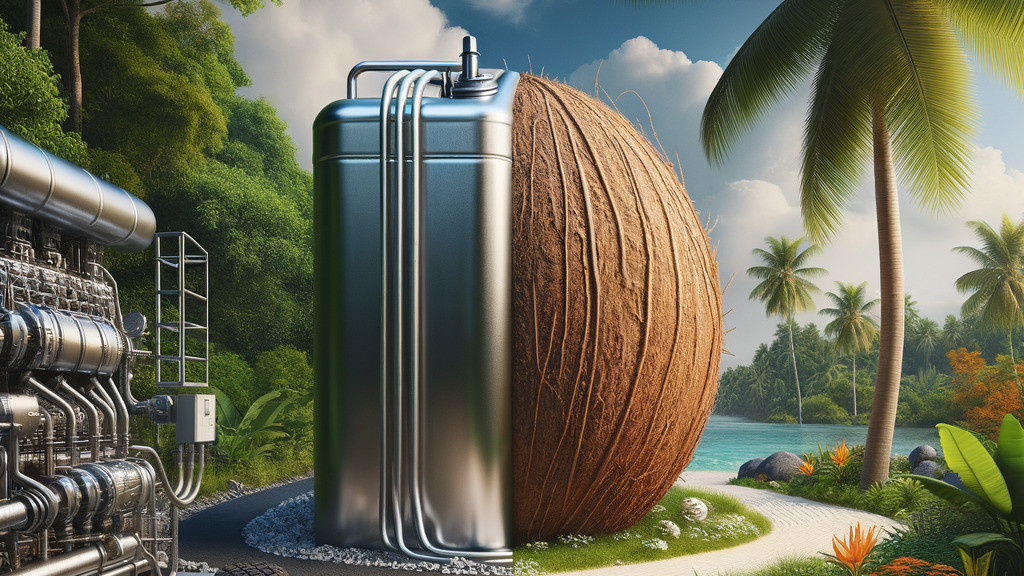In the global race to find sustainable energy solutions, biodiesel has been hailed as a green alternative to conventional diesel, promising to reduce our carbon footprint and combat climate change. But beneath the surface of this eco-friendly façade, a contentious debate rages. Is biodiesel a truly sustainable fuel, or does it present a new set of environmental, economic, and ethical dilemmas?
The Environmental Paradox
Biodiesel is often celebrated for its renewable nature and potential to lower overall greenhouse gas emissions. It's true that, compared to fossil diesel, biodiesel can reduce certain air pollutants. However, this clean image is clouded by concerns over land use changes, biodiversity loss, and the carbon debt created by deforestation when expanding crop production for biofuels. The question arises: Are we merely trading one form of environmental degradation for another?
Emissions: Not All That Glitters Is Gold
While it's marketed as a cleaner alternative, the production of biodiesel isn't without emissions. The process of cultivating, harvesting, and processing biofuel crops often involves significant use of fossil fuels. Moreover, some argue that the nitrous oxide released from the fertilizers used in growing these crops could negate the benefits of reduced carbon emissions from biodiesel use.
The Food vs. Fuel Dilemma
The utilization of agricultural land for biofuel crops like soy and palm has sparked an intense food vs. fuel debate. Critics argue that diverting cropland from food production to biofuel crops raises food prices and compromises food security for the world's most vulnerable populations. Proponents of biodiesel must confront the ethical implications: Is it justifiable to prioritize fuel over food?

(symbol image, credit CLOU)
Economic Impact: Boon or Bane?
Biodiesel proponents tout its potential to create jobs and reduce dependence on foreign oil. But skeptics question the economic viability of an industry heavily reliant on government subsidies. Without these subsidies, would biodiesel be able to compete in the open market against other renewable energy sources or even remain cheaper than fossil fuels?
The Hidden Costs
There's also a concern about the hidden costs of biodiesel, including the potential for engine damage in older vehicles not designed for biodiesel use and the investments required for infrastructure to distribute and store biodiesel effectively. These costs raise doubts about the overall economic advantage of biodiesel as a sustainable alternative fuel.
The Cold Weather Conundrum
Biodiesel's performance issues in cold weather, where it can gel and clog fuel filters and injectors, pose significant operational challenges. This limitation not only affects vehicle performance and reliability but also places a question mark on its practicality as a year-round fuel solution in many regions.
The Second-Generation Promise
Advancements in second-generation biodiesel production, using non-food crops or waste materials, offer hope for a more sustainable biofuel without compromising food production. Yet, this technology is still in its infancy, with scalability and cost-efficiency being major hurdles. Can second-generation biodiesel live up to its promise, or is it too little, too late?
Conclusion
The biodiesel narrative is not as straightforward as it may seem. While it offers some clear advantages over traditional diesel, it also brings its own set of controversies and challenges that must be addressed. The sustainability of biodiesel hinges on finding a delicate balance between environmental benefits, economic feasibility, and ethical considerations. As the world grapples with these issues, the question remains: Is biodiesel a step toward a greener future or a misstep on the path to sustainable energy?
Thank you for reading. I'd love to hear your thoughts and insights on this matter.
Until then, keep shining bright like a solar panel on a sunny day!






All comments are moderated before being published. Inappropriate or off-topic comments may not be approved.